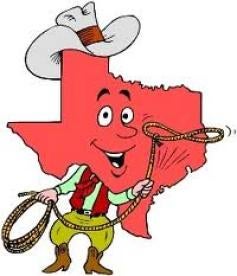In recent years, various government branches and departments across the country who are responsible for policing the government’s own trademarks have been sending cease-and-desist letters and filing suit against local businesses that are using trademarks likely to either cause confusion as to the government’s sponsorship of or affiliation with the companies or dilute the famous qualities of the government’s distinctive marks.
The most recent lawsuit concerns Virginia’s recognizable “Virginia Is For Lovers” slogan. In June 2018, The Virginia Tourism Corporation (“VTC”) filed suit against Recovered Gold LLC, an online gun parts dealer, arguing that consumers would likely confuse the parts dealer’s trademark, which includes the phrase “Virginia is For Gun Lovers,” with the state’s longtime “Virginia Is For Lovers” catchphrase.

VTC voiced concern that consumers would misconstrue that the retailer was affiliated with the state when no such connection exists. VTC has obtained multiple registrations over the years for “Virginia is for Lovers” with the Patent and Trademark Office (“PTO”) for use in clothing, accessories, and license plate holders to promote travel and tourism in the U.S. In its lawsuit, VTC alleged that it spent considerable time and money in developing and promoting its trademark, which was first used in 1969 and later earned a spot on the Madison Avenue Advertising Walk of Fame in 2009. VTC also alleged that the likelihood of confusion between the two marks was especially high because VTC previously granted third-party requests to use the slogan in connection with third party products and services. VTC sought a permanent injunction barring Recovered Gold’s use of the mark as well as attorney’s fees, disgorgement of profits, and punitive and statutory damages up to $1,000 per day for each day Recovered Gold continues to use “Virginia is for Gun Lovers” without VTC’s intent. Defendant Recovered Gold has not yet answered the complaint.
Moving along to the Garden State, in 2016 a small New Jersey winery, Old York Cellars, filed suit in New Jersey state court seeking a declaratory judgment confirming that the winery’s “What Exit Wine” brand of wines was not infringing upon New Jersey Turnpike Authority’s (“NJTA”) trademark, the logo for the Garden State Parkway.

Both marks feature a green and yellow color scheme with an outline of the state of New Jersey. The wine company’s logo, “What Exit Wines,” had already been modified once at the request of the Authority, but NJTA was unsatisfied with the changes and threatened legal action against the wine company. Old York Cellar’s owner expressed disapproval of the government’s interference and competition with its taxpaying small businesses.
Old York Cellar’s complaint against NJTA alleged that the New Jersey Turnpike Act, which limits the Agency’s authority, prohibited activity that was not “directly or indirectly related to the use of a transportation project,” and thus argued that the agency could not use and license intellectual property. The wine company also pointed out that the green and yellow color scheme was found on countless highway signs throughout the country and further asserted that there is no likelihood of confusion caused by the company’s mark because “nobody expects to buy wine at the Driscoll Bridge Toll Plaza and there are no EZ Pass lanes at Old York Cellars–” in other words the goods and services in question are sufficiently distinct to preclude confusion. The NJTA counterclaimed against Old York Cellar seeking a declaration that the winery’s use of its “What Exit Wine” logo and wine labels constituted trademark infringement.
Coincidentally, around this same time, the NJTA was battling with the owners of Jersey Boardwalk Pizza, a pizza and sandwich shop in Florida, that was using a logo and mark that NJTA contended infringed on the Garden State Parkway logo:

The matter was before the Trademark Trial and Appeal Board (TTAB) on NJTA’s opposition proceeding challenging the pizza shop’s trademark registration application of its Boardwalk Pizza mark. After years of litigation, the TTAB rejected NJTA’s challenge finding that the proposed mark was not confusingly similar to the Garden State Parkway mark because, despite the competing marks containing similar stylistic elements, NJTA did not have common law rights in its mark as to restaurant services, the overall connotation of the marks was different (pizza v highway), and the goods and services provided by the pizza shop owners was markedly different than those provided by the NJTA. In concluding that confusion as to source was unlikely, the TTAB found the lack of relatedness of the restaurant services with which the proposed mark is used to NJTA’s traffic control and highway operation goods and services to be dispositive, regardless of some degree of strength of NJTA’s mark, some overlap in the trade channels, and the similarity of the actual marks. NJTA’s opposition was, therefore, dismissed.
Following the opposition dismissal, the NJTA settled with Old York Cellars under terms and conditions that are subject to a confidential settlement agreement.
Across the Hudson River, last summer the City of New York filed suit against Blue Rage Inc. d/b/a Chop Shop, a company that prides itself on being “Long Island’s largest police and fire equipment store.” The complaint alleged violations of the Trademark Act of 1946 (The Lanham Act) through Chop Shop’s use of NYPD and FDNY logos on souvenir merchandise, which the City alleged amounted to counterfeiting. The City pleaded with particularly emotional language given that one of the trademarks in question had been used since the September 11, 2001 attacks to honor FDNY personnel who risked their lives trying to save others. The case is still pending, with a recent decision in June 2018 made by Magistrate Judge Shields in the Eastern District of New York ordering the City need not disclose the profits it makes on its merchandise or its contributions to non-profit organizations.
Next, the municipal government for the city of Portland, Oregon recently settled a dispute with a local brewery over trademark rights to the famous “White Stag sign.”

The sign that the city owns consists of a white reindeer above the words “Portland Oregon” contained inside a border outline of the state of Oregon and hangs prominently in the state’s largest city. In 2015, the city sought to register an image of the sign to use as a trademark on a variety of goods, but the Patent and Trademark Office (“PTO”) refused registration of the mark for beer products because Old Town Brewing obtained registration for a “leaping stag” back in 2012 that takes up a considerable portion of the city’s famous sign. Many residents of Portland viewed it as an attack on small business, given that every time the city tried to apply for use in beer, Old Town brewing expended a lot of money in legal fees to urge the PTO to reject each application. Many local drinkers and fellow small and independent breweries showed their support for Old Town Brewing during the several trademark disputes in the form of letters and social media posts. Finally, Old Town Brewing and the mayor of Portland in January 2018 reached a compromise. The city would remove beer, wine, and liquor from its pending trademark applications if the brewery notified the PTO that it consented to the city’s registration for any purpose outside the field of alcohol beverages.
Saving the biggest state for last, owners of the longtime local eatery El Fenix unveiled a new mural on the restaurant building’s exterior which reads “Don’t Mess with Tex-Mex,” a term used to describe cuisine that features tastes and flavors originally characteristic of the border regions of Texas and Mexico.
The Texas Department of Transportation (“TxDOT”), owner of the infamous “Don’t Mess with Texas” slogan originally coined as part of an anti-litter campaign, argued that the mural dilutes the value of their trademark.

The restaurant previously requested a license to use the phrase as part of its “Don’t Mess with Tex-Mex” slogan, but the TxDOT denied the request as well as the restaurant’s offer of free food and drinks. El-Fenix maintains that the mural is not likely to cause confusion over a possible affiliation with an anti-littering campaign. The parties, however, have yet to initiate any legal action, so perhaps some sort of licensing agreement or compromise may be reached in the near future.

The important takeaway for trademark applicants to heed from these recent disputes is not only should applicants search the PTO database thoroughly to ensure their applied-for marks do not infringe on another private competitor, but they must also take into consideration whether any government entity could contest the mark for its likelihood to create confusion or dilute the public entity’s well-recognized and/or registered trademark, especially where the governments marks serve as inspiration for the applied for mark.



 i
i

